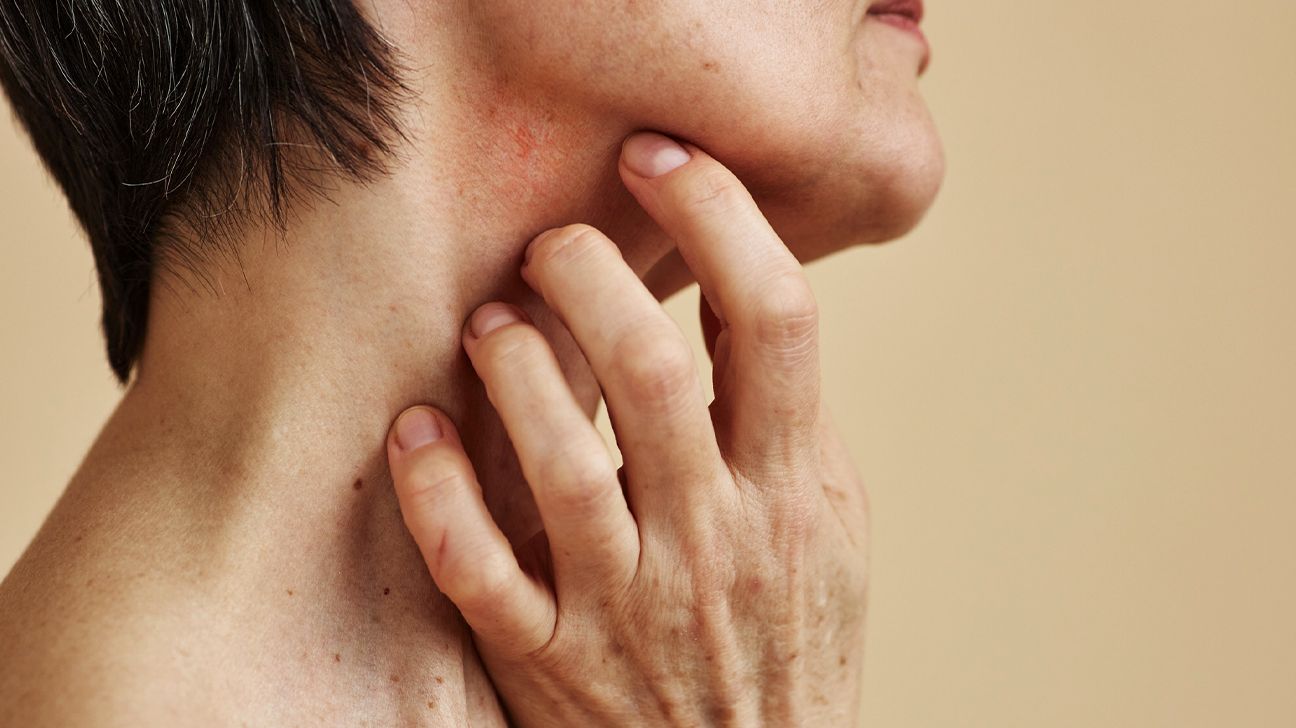Dehydrated skin lacks water, whereas dry skin lacks oils. The nuance between the two can be difficult to discern, but it’s important to understand so you know if you need hydration or moisturization.

One search into products and you might start to wonder: Are hydration and moisturization two different things?
The answer is yes, but how do you know which is best for your complexion? To find out, it’s important to make the distinction between dehydrated skin and dry skin.
Dehydrated skin lacks sufficient water. This can happen to anyone, regardless of skin type — people with oily or combination skin can still experience dehydration.
Dehydrated skin typically looks dull and can show premature signs of aging, like surface wrinkles and loss of elasticity (firmness).
A great way to tell if your skin is dehydrated is with the pinch test. While this test isn’t definitive, it’s a good way to start thinking about your skin from the inside out.
Try the pinch test
- Pinch a small amount of skin on your cheek, abdomen, chest, or the back of your hand and hold for a few seconds.
- If your skin snaps back, you’re likely not dehydrated.
- If it takes a few moments to bounce back, you’re likely dehydrated.
- Repeat in other areas if you’d like.
With dehydrated skin, you might also notice:
- darker under-eye circles (bags), or tired appearance
- itchiness
- skin dullness
- fine lines and wrinkles
Dry skin (xerosis cutis), on the other hand, isn’t lacking water. Dry skin is a skin type, like oily or combination skin, where the complexion
You might also see:
- scales
- skin flakes
- redness or other color changes
- irritation
- increased incidence of psoriasis, eczema, or dermatitis
If you want your skin to look and feel its best, it’s important to hydrate or moisturize.
If you have dehydrated skin, you may be able to skip moisturizers. If you have dry skin, you may find that hydrating only worsens it.
If you’re hydrating and moisturizing, use hydrating ingredients first and then take the steps necessary to seal that moisture in.
Take a look at our table below for an ingredient breakdown by condition. Everyone’s skin is different, so be sure to speak with a dermatologist before trying new ingredients or products.
| Ingredient | Best for dry or dehydrated skin? |
|---|---|
| hyaluronic acid | both: be sure to apply an oil or moisturizer to lock it in |
| glycerin | dehydrated |
| aloe | dehydrated |
| honey | dehydrated |
| nut or seed oil, such as coconut, almond, hemp | dry |
| shea butter | dry |
| plant oils, such as squalane, jojoba, rosehip, tea tree, argan | dry |
| snail mucin | dehydrated |
| mineral oil | dry |
| lanolin | dry |
| lactic acid | dehydrated |
| citric acid | dehydrated |
| ceramide | both: ceramides strengthen your skin’s barrier to help prevent moisture loss |
| urea | dry |
| colloidal oatmeal | dry |
Skin care ingredients to avoid with dehydrated or dry skin
While certain ingredients can help your skin recover when it’s the most dehydrated or dry that it has ever been, you might want to watch out for a few potentially harmful ingredients.
Since dehydrated and dry skin tends to be more sensitive than your regular skin, try to avoid these potential irritants in skin care:
- fragrance or perfume
- dye
- alcohol or denatured alcohol
- physical exfoliants like sugar- or coffee grounds-based face or body scrubs
- pure essential oils (make sure to dilute them in a carrier oil first)
For dehydrated skin, oral hydration is a must because it adds water to your complexion from the inside. You can also incorporate water-rich foods into your diet, such as:
- watermelon
- strawberries
- cucumber
- celery
Consider carrying around a water mist, like rose water.
For dry skin, keep on moisturizing. This process helps dry skin better retain water and maintain a proper level of hydration.
The key to addressing dry skin is finding products that help you lock in moisture, especially overnight. Try using a humidifier, especially during winter months, or wear a gel sleeping mask for an extra boost.
If your hands or feet are particularly affected by dry skin, you can try slathering on a moisturizer and wearing gloves or socks to bed to help your skin really soak it in.
If your skin doesn’t improve or becomes worse after trying home treatments, speak with a dermatologist. They can recommend products and ingredients.
In some cases, they might prescribe a topical medication to help with your skin concerns.
Dehydrated skin and dry skin don’t refer to the same skin condition. Dry skin, in fact, isn’t a skin condition but rather a skin type.
Dehydrated and dry skin require different treatments, so it’s important to determine which you have before trying any remedies. You may need extra hydration, moisturization, or both.
If you find that your skin doesn’t improve with at-home remedies, or that it worsens, connect with a dermatologist. They can help you find the right treatment to bring relief to you and your skin.
Deanna deBara is a freelance writer who recently made the move from sunny Los Angeles to Portland, Oregon.





